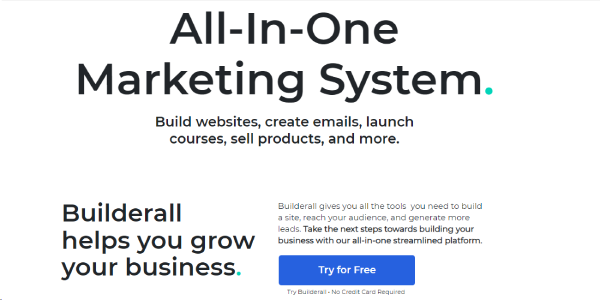Why performing SEO audits is necessary?
On average, 20 billion websites are crawled daily by Google robots. However
, this does not mean that Google
visits your site regularly. Errors on your site can cost you dear.
Google sets a maximum number of pages from a website that can be explored. A crawl rate limit states that a robot can only access a specific number of pages simultaneously, with no additional pages being visited. Your website could be using up part of its crawl budget if there are lots of pages with a 4XX error or outdated content. This means that some of these pages are not being crawled.
It is therefore essential to regularly carry out SEO technical audits to avoid this type of result:
A chance is available to you to secure advantageous spots in search engines, though many websites don’t prioritize this.
Let’s now look into what exactly a technical SEO audit consists of.
What is a technical SEO audit?
Optimizing a website for Technical SEO involves making it simple for search engines to crawl and index the pages. An analysis of your website from a technical SEO perspective can help identify issues that are negatively influencing your website’s positioning in search engine results.
How can I perform a technical SEO site audit?
Here are some of the steps you can follow to conduct a technical SEO audit:
- Scan your website to identify issues.
- Revise and optimize your sitemap.
- Improve the speed of your site.
- Audit the link profile.
- Make sure there is only one navigable version of your site.
- Check your HTTPS content.
- Perform an on-page SEO audit.
- Check your website’s analytics data for issues.
- De-index your low value pages.
It is possible to go through some of the main aspects of an SEO technical audit in a time span of a few hours. Here are a few of the key steps that should be looked at.
Is SEO a technical skill?
Even though SEO necessitates some specialized knowledge, it is easy enough that anyone can pick it up from the beginning. You don’t need a technical background to learn SEO.
How can I learn technical SEO?
Checking out web-based information and resources is a great way to pick up tips and tricks for technical SEO. Using your understanding of the subject matter, you must demonstrate this skill in an actual setting to become an expert.
How much does an SEO technical audit cost?
You can do a technical SEO assessment without spending any funds. The only expense related to paid SEO tools is the price of the tool itself.
What is included in an SEO technical audit?
An analysis of technical SEO will detect any problems that might keep search engines from successfully crawling and indexing your website or webpages. There is no fixed formula for what should be included, but the steps mentioned here provide full coverage.
What is an SEO Audit Tool?
In order to speed up and improve the efficiency of the audit procedure, SEO audit tools can be utilized. By using them, you can bypass the need for manually examining every check and automate much of the SEO evaluation process.
Why is technical referencing important?
Search Engine Optimization on a technical level is essential because it assists search engines in comprehending the material of a website, allowing them to allocate an appropriate rank. It is very important to understand the way search engines sort the data on your website in order to acquire the appropriate search queries and generate pertinent traffic.
How long does a technical SEO audit take?
If you possess the necessary skills and have a good idea of what is to be done, a technical SEO assessment can be done in just sixty minutes. This should not require more than a couple of hours even for those just starting out.
Learn how to perform an in-depth technical audit of your website
Are you curious as to why it is necessary to carry out technical SEO audits on your website?
I’ll tell you why it’s important. HAS
There is continual competition in digital marketing, which is why it is essential to remain up-to-date on the latest industry trends.
Search engine optimization is an integral component in the success of any web page and cannot be overlooked.
SEO is very important for the success of any online
business . In fact, about 61% of marketers say SEO is their primary
inbound marketing
goal .
Even if your website has been constructed appropriately, it is not likely to be able to be successful in competition if the search engine optimization is not at an acceptable level.
It is essential that you carry out technical SEO checks to ensure your SEO is functioning optimally.
You will be presented with a notion of ??your website’s standing and the necessary steps that must be taken to boost its ranking in the search engine.
This does not have to be an arduous and time-consuming endeavor.
It won’t take much of your time to finish a technical SEO review. The comparatively small duration can create a sizable effect.
Before exploring the topic in more detail, let’s start by understanding precisely what a technical SEO analysis entails.
What is a technical SEO audit?
You have to guarantee that your website and material get a high rank in Google’s Search Engine Results Pages.
The days of keyword stuffing and
backlinking
from micro sites are over. You need to up your game and adapt your SEO strategy to the latest developments.
How can performing a technical SEO audit help your website rank better?
A technical SEO audit is a process where you
check the technical aspects of your website’s SEO
. It’s basically checking the health of a website and determining what needs to be fixed to improve it.
Search engine bots scour the internet to uncover pages and websites.
The crawlers evaluate your website in terms of different criteria that are used to decide its position in the search results. Afterwards, they generate a rank for it.
SEO is always evolving, and your rivals are staying on top of these shifts. It is essential for you to stay current in order to remain pertinent. If you don’t evaluate the performance of your website, you may end up losing visitors to your rivals.
It is sensible to carry out short audits every month due to the continuous alterations to search algorithms and technology.
Every four to five months, carry out a comprehensive technical SEO assessment.
What factors affect your website’s SEO performance?
Three components shape the SEO of a website: technical, content, and links.
- Technical factors: These are technical aspects such as hosting, indexing, page loading speed.
- On-page factors: These are factors such as site content, target keywords and related terms.
- Off-page factors: These are backlinks and external referrals to your website from other websites.
It is recommended to evaluate each of these aspects periodically. You will have constant awareness of the shifting environment in the region.
SEO Audits That Build Leads & Sales
A website review should indicate why a website is not performing optimally in terms of its rankings, and then provide helpful guidance on how to improve its rankings.
Addressing problems related to technical SEO, such as title tags, quickening up a website, and enhancing inadequate inbound links are essential matters to be addressed. Including pertinent key words to header tags and other technical optimization alterations are basically an effort in refining the scores, which John Mueller has labeled “short-term thinking.”
Technical SEO Site Audit
SEO reviews generally concentrate on the technical details of developing and producing a well-designed website.
Common areas of focus are:
- URL structure
- Analysis of redirects
- Page headings (H1)
- Title tags
These influential elements are generally known as Search Engine Optimization techniques. Technical SEO is instrumental in constructing the basis of a website in robust shape.
Although technical SEO may not directly result in more sales and leads, it is still beneficial.
Overview of a Sales & Leads Focused Site Audit
This is a brief outline of aspects to include in an examination of a website that centers on sales and leads. This is designed to provide a sense of what aspects of transformation should be at the center of a thorough website study.
How to Use Keywords to Diagnose Poor Sales & Leads
Keywords are always included in a technical SEO audit. But an audit focused on sales and leads will sort them (in descending order of value) according to their:
- Usefulness for direct conversions.
- Precursor value leading to a sale.
- Awareness building value.
This is an illustration of how to diagnose unimpressive sales and lead production by utilizing keywords.
Identify Keywords Ability to Convert
Certain words are not pertinent to the purpose of transforming a site visitor into a purchase or subscription.
An individual who shifts pianos could experience queries such as, “How much does a piano weigh?” This is an illustration of a long-tail term. We don’t care about those.
If the page does not strictly relate to the topic, then it is not really increasing the website’s value, and the usual solution is to ensure that the page is not connected to other ones on the website through navigation menus.
Occasionally, these unhelpful words stem from a lack of care in the creation of material associated with a content marketing scheme.
For example, after a seafood restaurant posts a piece about strange fish, it can expect an increase in nationwide interest for freaky fish queries. Subsequently this could result in the business receiving a lot of website visitors from the entire nation.
Match Keywords to Webpages
Objective of this portion of the website assessment is to enhance the rankings of the most advantageous keywords. An audit of a website should be conducted to identify the reasons why sales and leads have not reached their maximum potential, after which appropriate measures must be taken to raise their position in the rankings and raise their sales and leads.
Step 1: Identify Webpages
Link the keyword phrases to the appropriate webpages that the search engine will direct them to.
Step 2: Analyze Usefulness of Webpage to Keyword Phrase
A frequent cause of variable conversions and sales in a business could be the pages which show up for keyword searches are not positioned highly. The inadequate ranking of the elements is due to an issue with the content itself.
Step 3: User Intent Analysis
A webpage may not reach its potential if something about it outside of the content is not working properly. The content may be just fine. The problem is related to what the user was attempting to find when they typed in their search query.
Search engine inquiries that have no specific purpose can lead to websites that provide advice and suggest certain websites and products appearing in the highest positions. Alternate phrasing: It is possible to gain an advantage over these types of websites by boosting visibility, but this warrants an extensive article on its own.
Schema Optimization – Structured Data
Schema microdata is not perceptible to the naked eye on a webpage, but search engines can detect it. People typically think of it as a way to increase their search engine visibility, yet there is much more it can do. Organized information can contribute to developing leads and bringing in additional money for your company.
Schema.org structured data can go largely unnoticed; however, its main function is to impart knowledge about your site and its information when it shows up in Google’s search engine outcomes. This could include what the webpage offers, where your business is located, and other pertinent information that you would like to share with the website’s viewers. By clearly outlining the products or services that your company provides, in addition to the location of your business, you will be able to drive sales and generate more potential customers.
Some may argue if Schema microdata will result in a better ranking, however, in general it is widely considered a beneficial factor for the purpose of creating a better understanding of the contents of a webpage to both search engine crawlers and web visitors.
The crux of SEO involves modifying your webpage in order for a search engine to comprehend it. Using schema microdata is a great approach for achieving the objectives of improving sales and appealing to potential customers.
How Search Algorithms Impact Rankings
There are various components involved in presenting a search outcome. Patents associated with search engines are often called “Engines,” but are most commonly referred to as algorithms.
When all of the programs are combined, they construct a system which is commonly referred to as a search engine. It is not only a single algorithm, but many different kinds of algorithms all running simultaneously.
Examples of engines that make up a search engine:
- Indexing Engine
- Core Ranking Engine
- Modification Engine (related to user experience and personalization)
- Presentation Engine
Takeaway: Satisfaction is a Key to Rankings
This phenomenon is noticeable in the world of attorneys specializing in personal injury cases. If you enter the query, Personal Injury Lawyer (Name of Town), you will observe two varieties of results, with the Local Search “Three Pack” at the beginning of the page.
The initial type of search result usually includes a website that suggests legal professionals. The number of these websites can range from one to three.
The second type of outcome displays one law office as number one spot (below the “three-pack”) after which one or multiple lawyer referral sites. This is a difficulty that both those offering services and those supplying products find troublesome.
Google has a rationale for their actions which is founded on data, and it is possible to surpass those corporate sites that make suggestions. The resolution and result are linked to consumer gratification.






